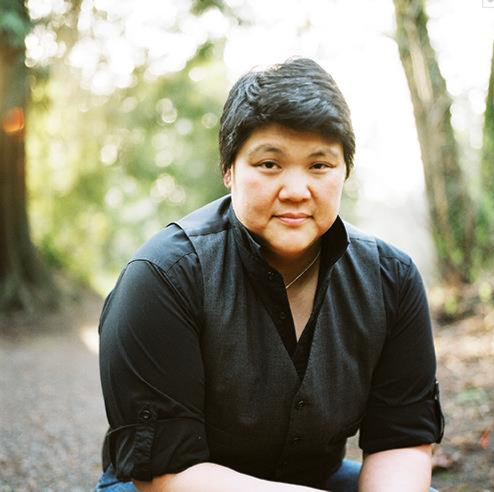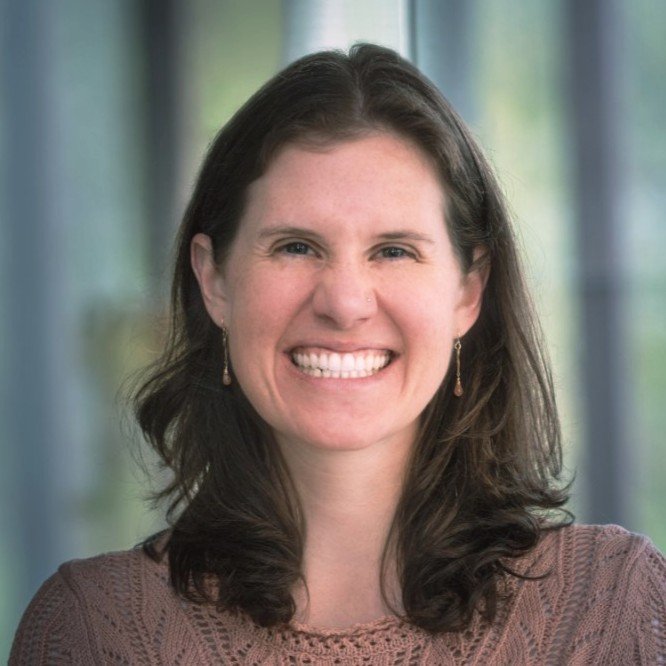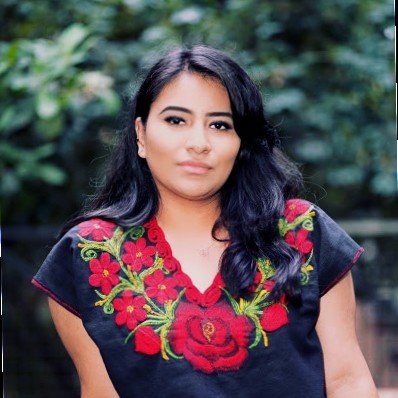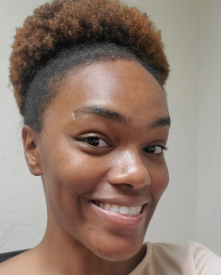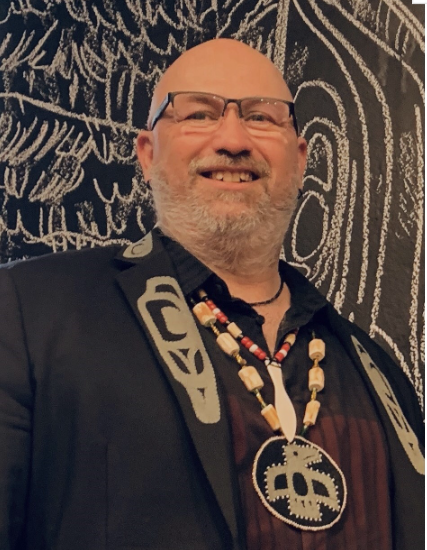Reese Tanimura
Managing Director, Northwest Folklife
Interview by Li Tang & Dilara Kal
November 15, 2022
Northwest Folklife is an anchor arts institution in the Pacific Northwest, known principally for its signature its annual Folklife Festival hosted a Seattle Center which has been running since 1973. Reese Tanimura, Managing Director of Northwest Folklife told us how the arts organization pivoted during the Covid-19 Pandemic to help working musicians and artists get digital skills to maintain their livelihood and to maintain connection to community for musicians and music lovers alike through that difficult period. The digital needs of cultural workers and cultural communities are not always given a spotlight in Digital Equity conversations. Tanimura emphasizes the importance of going beyond thinking of Digital Literacy as a simple set of basic skills, to a broader and deeper skills that help people grow professionally and personally. We were surprised to learn of the difficulties the NW Folklife community faced during the pandemic and of the innovative ways they overcame them. Specifically, Tanimura calls attention to the cross-sector collaborations that enabled Northwest Folklife to do a better job of supporting the arts communities they work with, and the longer-term impacts that may come from come out of these collaborations forged in the heat of the Covid-19 Pandemic.
Q. What is your definition of Digital Equity, and what about it motivates you?
RT: What is your definition of Digital Equity, and what about it motivates you?
I think, fundamentally, Digital Equity is about accessibility of digital tools and resources for everyone, which helps society move towards a greater picture of equity. It's not just about equity within the digital sphere– that's one piece of it– but rather about using digital platforms and tools to create greater equity in both digital and analogue spaces.
Q: What are you passionate about in this space?
RT: It's very important that we understand that even though we've been in two years where a lot of folks have used more digital tools and have had a little bit more access to the Internet, to stable broadband, and to adequate broadband speeds – and that has improved – but it's really important to note that not everybody has that equity.
I think I'm most passionate about equity being applied to folks being able to develop professionally and have greater tools and resources to move and advance themselves in whatever space they want. For me, that's in the arts.
I'm a musician, and a lot of my acclamation is towards the community of musicians. I think true digital equity means that music composition is possible between musicians who collaborate. In the pandemic, musicians needed communication programs to collaborate, whether they were collaborating globally or nationally, or even, in the town or two states over. Those tools still aren't accessible to everyone. They're expensive, or they only work on certain kinds of computers with certain operating systems. So when we think about equity, there's a lot of layers and hurdles to get through. Obviously basic access to tools like computers and the Internet are still important. Then I think about how we create more equity for people to grow in their respective professions. That's also about accessing tools that help that growth.
“In the pandemic, we saw a lot of musicians and artists basically lose their livelihood within a matter of weeks. For two years, it's been trying to come back to places where you can adequately interact with audiences.“
Q. What values and/or principles are important for everyone in this space to do good work?
RT: I think that the same values apply for any equity work. It is really, “Nothing about us without us.” For me, I've gotten to know in a positional way, in a place, if there's something that I'm creating as a channel through Northwest Folklike. For example, we have a Workforce Development Program (Northwest Folklife Cultural & Creative Workforce Development Internships) for young people to be able to access different kinds of experiences and knowledge to use some of these tools in this space. I need to make sure that is being created with input from the young people who we hope to give those opportunities to. Because most folks that are younger than me, they probably know their way around some of these systems. A lot they do, or at least, parts of some of the platforms. There's also the matter of whether somebody's digital skills needs are maybe not necessarily the most basic but there is still room for them to grow to develop personally and professionally.
For me, there is value in always being in conversation and community with folks that have less access and thinking about the value of seeing where your position and power is, and then being able to always think about how to move and shift the balance of that, whether it's in the physical space of an organization, or whether it's in the digital space. In terms of professional development tools for artists in the pandemic, we saw a lot of musicians and artists basically lose their livelihood within a matter of weeks. For two years, it's been trying to come back to places where you can adequately interact with audiences. So thinking about how does an organization like Folklife and similar organizations that represent working artists make sure that steps are taken, that legislation gets passed, that help folks get that access. And to assure they have the tools to be self-determinate instead of always having to ask for or rely on a special program.
“I think that the same values apply for any equity work. It is really, “Nothing about us without us.”
Q. What have been big wins for you and how did they happen? What sorts of support were needed for them?
RT: One of the big wins involved Sabrina Roach and a whole different cadre of people who focus on Digital Equity to find different approaches that could work for the needs that arose in the wake of the pandemic and to foster symbiotic relationships that enabled the efforts of individual organizations to be more effective. I think there are a lot of times when we work in silos: There's arts people. There's tech people. And there's social services and librarians. It’s not to say that we don’t know other folks in those different lines of work, but when we each made the commitment to sit down together to intensively think together about Digital Equity with people who serve community in these very different ways and who bring their own and different perspective to this work, I think that it was a big win. Being able to learn and reflect about Digital Equity with people from these other sectors, helped me to integrate a little bit more thinking about what we were going to do digitally, and how to provide some of that equity and why do we do digitally.
It also felt like a win that other people became more aware of the intricacies of digital equity and professional development around the arts. Like, what are those things and tools that are not easily accessible because they are specialized? So, people are actually asking more questions about that. When they think about what we could provide at the library, or what other means or other organizations are out there that we can connect to, that may be able to provide certain things. I think those feel like wins because it's a little bit longer term work, but it feels more systemic. You're changing the actual infrastructure and relationships that will go forward in terms of how the work goes forward. I'm really excited about just helping or writing to legislators or city council members on issues that were brought to my attention through some of my colleagues doing Digital Equity work. Those things went forward and that is not due to a single person. It's like every person thinks this is important to all of us, so we need to throw down and write a letter, or come to a meeting and make a public comment. All those little things that seem a little bit boring or like they’re maybe not such a big deal, but when it can change legislation or policy, or provide funding for programs? That's the benefit. It's all, in the end, results.
You're changing the actual infrastructure and relationships that will go forward in terms of how the work goes forward.
Q. What is your organization’s goal in moving towards digital equity? What steps are being made by your organization to reach that vision?
RT: We did a pretty quick turn. Our large festival is in May. In late February of 2020 was the discovery of COVID-19, then in March we had to do the decision making. And then they said, “We're gonna lock you down for two weeks.” We're pretty fortunate. We had three doctors on our board at the time. They were pretty realistic with us, saying “This is going to go on for a longer time, and we don't think that it will be safe to have the festival.” So, we made a decision in April and reached out to communities to see how they were doing. Then we started to put together a cadre of home-shot videos of folks doing their dances, doing little workshops, or doing music in their living rooms.
That was a really great moment for us as we realized that our communities were really interested in still practicing and making sure that what we had was shared outward, and also, there were a lot of folks watching and interacting. We used Zoom to do social activities like contra-dancing. That was a very new thing. It was really fun to watch people dancing with their partners in their yard, or with their cats, or really just be there to interact with the musicians and interact with each other.
The hard part was knowing that some communities were just not in a position to be able to participate in the arts and cultural offerings online because they were just trying to take care of elders and do very fundamental things. I think part of learning the steps around digital equity for our organization is to think about some basic things like equipment and access.
There are also questions. How do you work with the community where they are at? How do you respond based on the assets that you have? How do we make sure that we are connecting our communities to these resources? We have over one hundred communities that participate with us. Some years, up to one hundred and fifty or so. We think in therms of ethnic communities, genre communities, and arts communities. Creating and funding Digital Navigators who can play that role reducing barriers to access has become a bigger thing over the last two years. That reach provides a way to get information to folks that are not necessarily reached by all the other ways. Sometimes government or other services try to reach folks. In those cases, so we can lean on the relationships that we have to make people aware of more resources than our mission is based around. But when we get down to it, our mission is based on people and their cultural thriving. So I would say digital equity probably is just as related. I think the steps that we take are just always should start with asking how to use the relationships we have built in the arts and cultural sphere to be able to provide folks with more resources and to create more linkages to other supporting organizations.
Q. What’s an example of some good work so far and who’s been doing it? Who would you like to give a shout-out to?
RT: I do get a lot of my information from Sabrina Roach. I do feel like Representative Gregerson and Washington State have been responsive and are pushing forward on equity issues. It is interesting to me that we have such a huge tech base in, particularly in Seattle, but also on the Eastside. I feel like we should be more advanced and more equitable than we are. I really feel like the city of Seattle doesn't have a lot of pros for many things. But some of the city staff that I've worked with have really been David Keyes who is digital equity manager and advisor at City of Seattle. They've just been really great about working with us as arts folks. For example, they have been great about helping us to learn how our work links up with other kinds of digital equity work in the city and keeping us informed on what is happening in the Digital Equity space locally and nationally. And arts organizations have been able to apply for the City of Seattle’s Technology Matching Fund Grants. I think having some of those folks in key places in the government and other organizations who understand and care about cultural workers and see the value of a cultural lens on Digital Equity is important. When I was working at Youth Care, an organization that works with homeless youth in Seattle, the program provided a “tech bridge”, introducing basic computer skills, but also learning how to actually build computers. All of these various facets are important. When Northwest Folklife initially started meeting around digital equity after the pandemic started with from the Seattle Music Commission, Sabrina Roach and David Keys were two people that kind of pulled in really quickly and really well. They helped us create a network of folks to work with that made our work at Northwest Folklife more impactful.
To learn more about Northwest Folklife
Connect with Reese Tanimura on LinkedIn.

